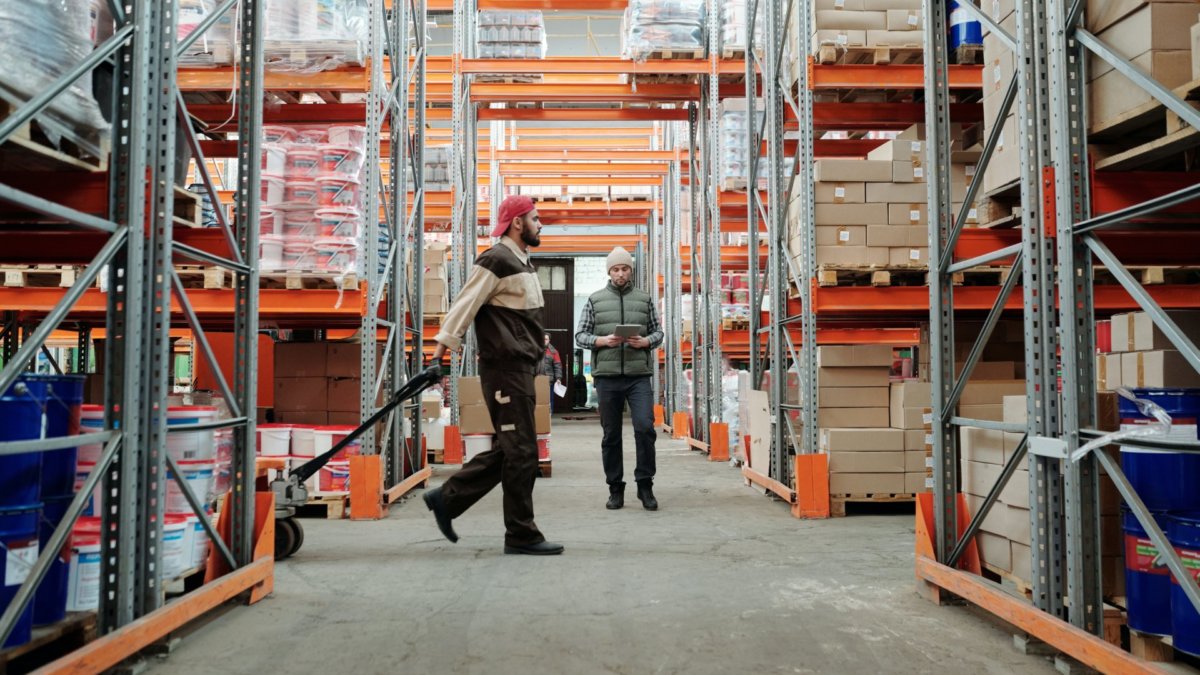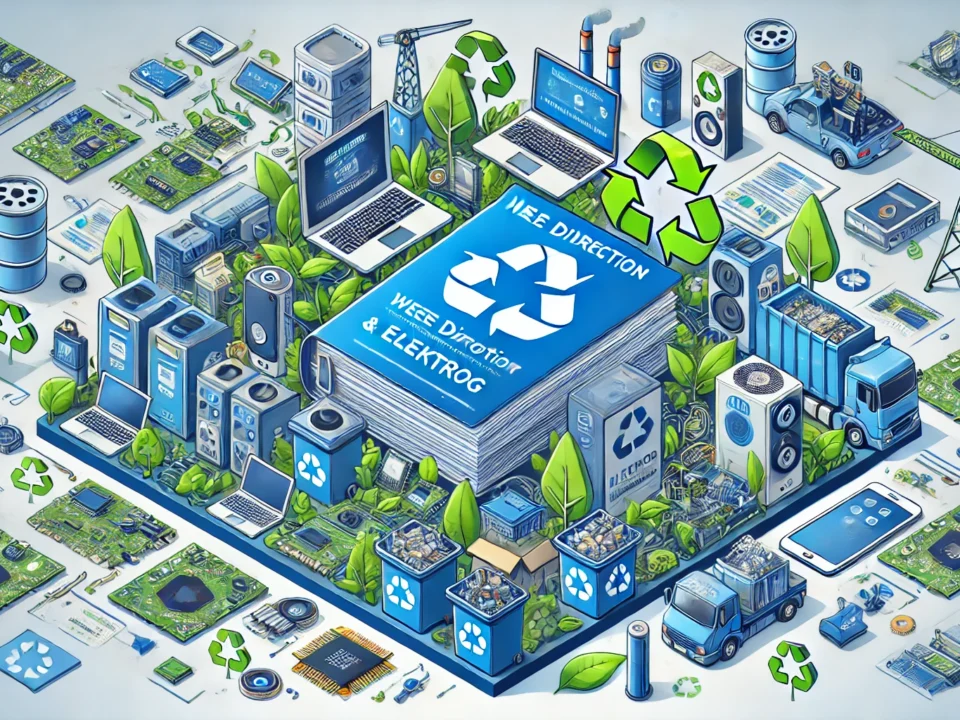Modern warehouse management in 2024

In today’s rapidly evolving business world, efficiency in warehousing is more than just a competitive advantage – it is a necessity for a company to survive and thrive. Modernizing warehouse management is therefore not a luxury, but a mandatory requirement to keep pace with the ever-increasing demands of the market.
In 2024, the topic of “modern warehouse management” is more relevant than ever, as technologies are developing rapidly and offer new opportunities to increase warehouse performance. Companies that are able to adapt these new technologies and effectively integrate them into their warehouse processes will not only experience efficiency gains, but also improved customer satisfaction and ultimately a stronger market position.
Managing a modern warehouse in 2024 requires a deep understanding of current trends, technologies and best practices, as well as a willingness to rethink and adapt existing processes.
The basics of modern warehouse management
In order to manage a modern warehouse in 2024, it is essential to understand and apply the basics of modern warehouse management.
The core of this modernization is undoubtedly digitalization and automation. These two aspects form the backbone of efficient, responsive and flexible warehouse management that meets the demands of today’s dynamic market.
Digitalization allows data to be captured and analyzed in real time, supporting accurate inventory control, improved demand forecasting and optimized resource planning.
Automation, on the other hand, minimizes human error, speeds up processing times and enables seamless execution of routine tasks.
A modern warehouse in 2024 uses advanced technologies such as the Internet of Things (IoT) to connect devices and systems and ensure a continuous flow of information.
Artificial intelligence (AI) and machine learning provide the ability to learn from large amounts of data and make intelligent decisions that optimize warehouse operations. In addition, sustainable practices are playing an increasingly important role. They aim to reduce energy consumption and minimize environmental impact by implementing efficient and environmentally friendly solutions.
Strategies for modern warehouse management in 2024
To run a modern warehouse in 2024, it is crucial to seamlessly integrate innovative technologies into existing systems. This integration is not just a question of technical implementation, but also requires a rethink on the part of everyone involved.
A key aspect of this is training employees to use new technologies. It is not enough to introduce advanced systems – staff must also be empowered to use them effectively. This includes not only the operation of new machines or software, but also an understanding of how these technologies improve work processes and the benefits they bring.
Furthermore, creating a data-driven culture is of great importance. Data is the backbone of any modern warehouse and its effective use can lead to significant efficiency gains. It is crucial that all levels of the company understand how data can be collected, analyzed and used to make better decisions.
This requires open communication across departments and continuous training of employees in data-related skills. By following these strategies, a company can modernize its warehouse in 2024 and secure a decisive competitive advantage.
Challenges of modern warehouse management in 2024
Modern warehouse management in 2024 brings with it numerous challenges that companies must overcome.
One of the biggest challenges is the cost of implementation. The introduction of new technologies and systems requires a significant financial investment. Companies need to plan carefully and allocate budgets to ensure that warehouse modernization offers a positive return on investment. In addition, data security and data protection are of central importance.
As digitalization increases, so does the risk of cyberattacks. Companies need to implement and constantly update robust security systems to protect their data and that of their customers.
Another challenge is adapting to rapidly changing technologies. The logistics industry is evolving rapidly, and what is considered advanced today may be outdated tomorrow. Companies must therefore remain flexible, constantly seek innovation and be prepared to adapt their processes to keep up with the latest developments.
These challenges require strategic planning, a clear vision and a willingness to invest in the future of the company. This is the only way to successfully overcome the hurdles and run a modern warehouse in 2024.
Outlook for the future: Further development of the warehouse in the coming years
The world of warehousing is on the cusp of a new era in which the ability to run a modern warehouse in 2024 and beyond will be crucial. The rapid evolution of technology, coupled with changing market demands, means that companies that want to be at the forefront of innovation need to stay at the cutting edge.
Predictions of future trends in warehouse management show that increased automation, the use of artificial intelligence to optimize logistics processes and an increased demand for flexibility and scalability will be the driving forces. Companies that want to prepare for this future need to invest in technologies that not only increase efficiency, but also enable adaptability to rapidly changing market conditions. It’s about creating an ecosystem where data flows seamlessly and decisions can be made in real time to meet the demands of tomorrow.
The further development of the warehouse requires a culture of continuous improvement and lifelong learning within the organization. This is the only way to ensure that employees have the skills to deal effectively with new technologies and fully exploit their potential. Running a modern warehouse in 2024 means setting the course for tomorrow today.
Conclusion
The need to run a modern warehouse in 2024 is clearly recognizable and unavoidable for companies that want to survive in today’s highly competitive economic landscape.
The continuous evolution in warehousing is not only a response to technological advances, but also to changes in society and consumer habits. Companies that see this change as an opportunity and actively shape it will not only increase their efficiency and productivity, but will also be able to consolidate and expand their market position. Managing a modern warehouse in 2024 is therefore not a one-off project, but an ongoing process that requires flexibility, adaptability and a spirit of innovation. For companies that are prepared to take this path, unimagined opportunities will open up.
Contact us now and get advice




